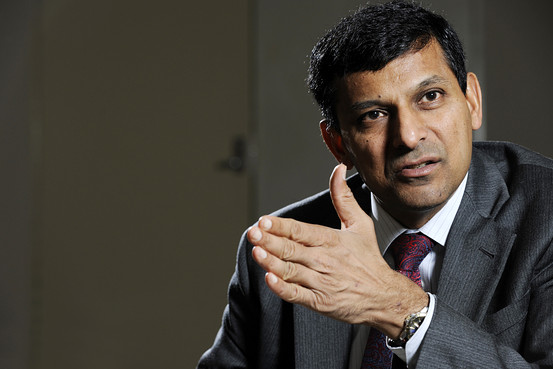On Saturday afternoon, the RBI governor formally notified his colleagues that he wouldn’t stay on for a second term. Whether the RBI governor is granted a second term or not, is the government’s prerogative. However, before the government could make its intentions clear, Raghuram Rajan decided to step aside.
Whether Rajan would be granted a second term as RBI Governor or not, was subject to a lot of speculation.
The ruling party’s maverick member of parliament Subramanian Swamy was vocal in demanding his ouster, claiming he was an agent of foreign powers and even going on to accuse him of money laundering. On the other hand, the private sector was wary of any such move. Or at least, that is what the mainstream media made us believe. Also staunchly backing Rajan for a second term were members of the previous dispensation, whom he had served in various capacities and who had ultimately given him this much-coveted job.
Once again, the mainstream media made us believe the government was in a soup. It might have been right to a certain extent too. After all, whether to set political interests aside or to ignore investors’ sentiment, is a tough choice for any government.
When Rajan resigned voluntarily without as much as a hint from the government as to what its future course of action would be, hell broke loose.
The government was accused of pressurizing him and being averse to genuine talent. The usual suspects who propagated this narrative waited with baited breath for the markets to crash, as an indication of how Rajan’s exit would adversely affect India.
Did the government pressurize him to resign? Without getting into the merits and demerits of the charges Subramanian Swamy levelled against him, we must understand that no other person of significance held similar radical views against Rajan. If the government actually functioned according to the whims and fancies of Subramanian Swamy, the country would have been a different place. However, it is entirely possible that the government, owing to other considerations, would have been against granting Rajan a second term. His exit in such a situation would have been honourable, just like other any other RBI governor who were denied a second term. Why would the government then force him to make such an announcement barely three months before his term reached its natural course? Clearly, he chose to step aside.
Is the government averse to genuine talent? Maybe in some cases, but the Rajan exit is certainly no indication to such averseness.
Firstly, whether Rajan is genuine talent or not is itself questionable. Economists across the spectrum stand divided on this, and in many areas it is simply too soon to tell.
Observe closely, and it becomes quite evident that the mainstream media created an aura of invincibility around the man and attempted to subtly carve out a cult figure. The optics, it is entirely possible, differ from the ground realities. Also, it is only fair that those who pass judgment on the government’s averseness to talent, wait for its replacement and assess his or her performance before advancing bigoted views.
Did the markets crash? Surprisingly, no. This gives an insight into the extent the mainstream media is willing to go to play upon people’s fears. It is also an indication that Rajan isn’t as indispensable to the private sector as the mainstream media would want us to believe. The market in fact made substantial gains despite his announcement, once again demonstrating that policy and direction overshadow individuals.
One cannot substantiate Subramaniam Swamy’s accusations without a proper enquiry. And despite its conspicuous timing, one must give Raghuram Rajan the benefit of doubt for announcing his exit without any mala fide intentions towards the government. But what one cannot deny is that some people attempted to use him and his exit to further their own agenda of defaming the present government. The mainstream media seems to be an important component of this grand, but failed, conspiracy.
To sum it all up, India had a controversial RBI governor who was reaching the end of his term. The government was deliberating as to whether he should continue or not. Several powerful entities attempted to swing the government’s decision one way or another, but to no avail. Finally, The RBI Governor himself decided to return to academia. There is nothing to suggest that the government forced him to take this step. And in this case, there is nothing to suggest that the government is averse to genuine talent.























